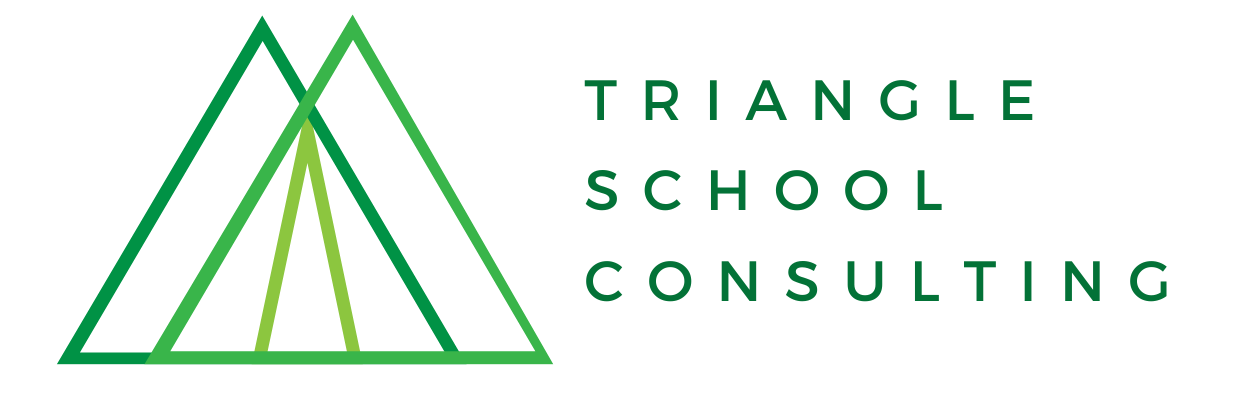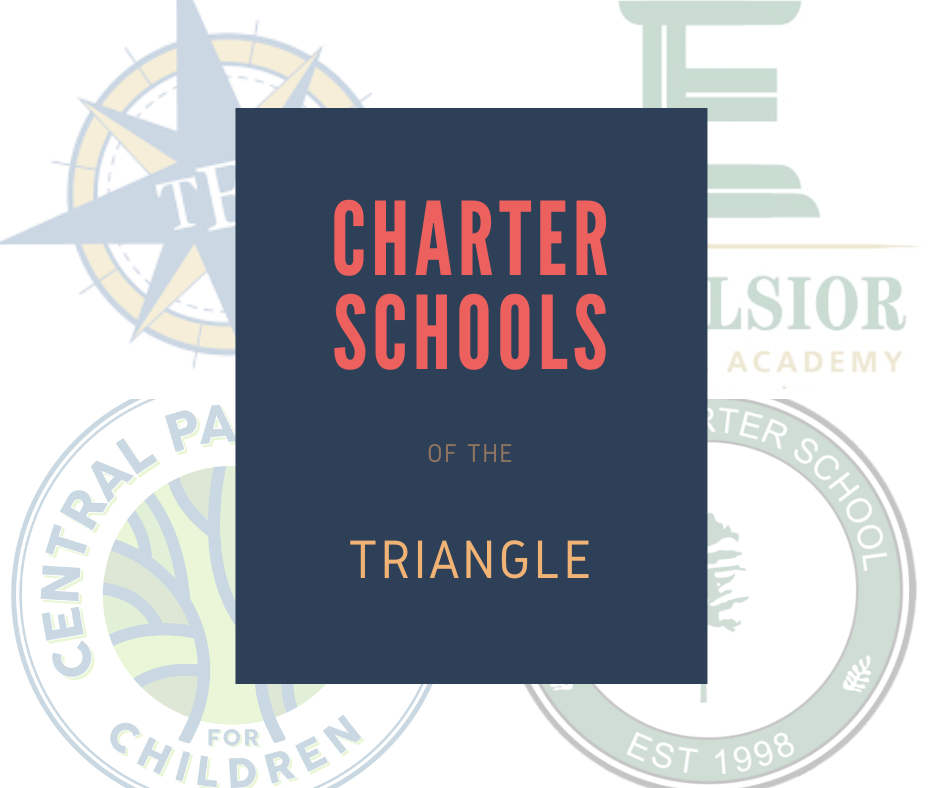What is a charter school?
Charter schools receive public funding and are tuition-free for students. They are governed by a group or organization under a legislative contract—a charter—with the State of NC. This agreement between the state and the charter school allows the school to have increased flexibility and autonomy while also being required to meet the accountability standards as set by the state. These agreements (or charters) are periodically reviewed by the state and can be revoked if the conditions of the charter are not met.
Public Charter Schools in North Carolina- what you need to know
- Primarily funded through state and local tax dollars
- Have open enrollment and are not allowed to discriminate in admissions, charge tuition, or be affiliated with a religion or religious group.
- Serve diverse student populations, including students with disabilities, English language learners, and those from various socio-economic backgrounds (just as public schools do)
- Required to participate in North Carolina’s accountability program, administer end-of-grade and end-of course tests, and provide data needed for NC School Report Cards.
- At least 50% of teachers must hold teacher licenses. All teachers who are teaching in the core subject areas of mathematics, science, social studies and language arts must be college graduates. (This differs from public schools where teachers are required to be licensed or pursuing license at time of hire)
- Are not required to provide transportation to students. In NC’s 2022 report, 55% of charter schools provide bus transportation.
- Are not required to provide free and reduced price lunches for students living in poverty. In the 2022-2023 school year, 82 charter schools participated in the National School Lunch Program.
How big is the charter school industry in North Carolina?
In the 2023-24 school year, there were 211 charter schools in North Carolina serving more than 138,000 students. Between 2019-2022 (just 3 years!) in NC, there was 19% growth in charter school enrollment, the fifth highest rate of charter enrollment growth in the country. The state’s budget for charter schools has grown from just over $16 million in 1997 to more than $674 million for the 2018-2019 school year. Critics of charter schools say that the majority of this money would have gone to traditional public schools to strengthen our public school system. You can see a full list of North Carolina charter schools here.
Why do we have charter schools?
Charter schools began in North Carolina in 1997. The push for charter schools came from a desire for education reform and an attempt to introduce innovation and competition into the public education system. Charter school advocates hoped to provide increased choice and learning opportunities, especially to students who are at risk of academic failure or who are academically gifted. Charter schools often garner bipartisan support: conservative voters like the limited government control and market competition while progressive voters like that all families get to choose their children’s schools, regardless of socioeconomic status.
Why Do People Like Charter Schools?
- Innovation and Flexibility: Charter schools have the freedom to develop their own curriculum and teaching methods, which can be beneficial in meeting the needs of diverse student populations. While they are still required to meet state academic standards, they have more flexibility in how they achieve these standards compared to traditional public schools, which often follow district-prescribed curricula.
- Parental Choice: Charter schools offer parents an alternative to traditional public schools, providing them with more options to select an educational environment that aligns with their child’s learning style and values.
- Small Class Sizes and Personalized Learning: Many charter schools emphasize smaller class sizes and individualized attention, though this is not universal.
- Addressing Specific Needs: Some charter schools specialize in serving specific communities or addressing particular educational needs, such as language immersion programs, arts-focused curricula, or STEM education.
Why people dislike charter schools:
- Shifting funds from local schools: Because charter schools are funded through public entities and tax dollars, critics argue that they take money and potential resources away from local public schools. Additionally, charter schools do not have to provide transportation to school, nor are they required to provide free/reduced lunch to qualified students.
- Lack of Accountability: Critics argue that because charter schools are run by appointed boards (versus an elected school board) and they are exempt from many of the requirements of traditional public schools, this leads to a lack of transparency and accountability. Charter schools are governed by independent boards that are not elected by public vote and in NC, board members don’t even have to live in the state.
- Variable Quality and Performance: The performance of charter schools varies widely, with some achieving remarkable success while others struggle academically or face financial mismanagement. North Carolina Charter Schools only have to have 50% of their teachers licensed.
- Potential for Exclusionary Practices: While NC charter schools have open enrollment policies, they may prioritize certain groups of students (for example, siblings or children of board members) which can lead to concerns about equity and access compared to traditional public schools, which are required to serve all students within their attendance boundaries. Additionally, charter school families often face the financial burden of paying for uniforms (required at some charters), transportation, and lunches.
Do charter schools provide special education support?
Charter schools must provide all special education supports identified through a student’s Individual Education Plan (IEP), just as a public school would. There can be, however, a large variance on how well a charter school provides these services. It is important for parents to talk to school administrators and parents at the school to determine if the charter school that you are considering provides adequate special education services.
Do charter schools produce better outcomes?
The research on charter school outcomes is mixed and the effectiveness of charter schools varies from school to school. There are some charter schools that consistently outperform traditional public schools and these are known as the “no excuses model” schools, made famous by a national network of charter schools known as KIPP. But these schools also receive a lot of criticism in the educational world. Otherwise, many charter schools do not, on average, produce student achievement gains any better than traditional public schools.
In Emily Oster’s recent book The Family Firm she explains that charter schools do sometimes produce greater academic outcomes than their traditional public school counterparts. However, this is most true when the alternative to the charter school is a failing, under-performing public school. In these cases, the charter schools tend to show large, positive impacts on test scores. On the converse, in places where the default public school has higher test scores already, the impact of the charter school is neutral (and sometimes even worse than the public school).
I think it’s important to note here that the academic impact that is discussed in the research is based on test scores which are not the only thing that is important in education. Public Schools First NC notes that North Carolina Charter Schools enroll a smaller percentage of economically-disadvantaged students, even though one of their stated missions is to help serve at-risk populations; “By enrolling fewer ED students than traditional public schools, charter schools also inflate their school performance grades. Data has shown that a school’s performance grade is strongly correlated with the percentage of ED students in the school, making the grade a better indicator of family wealth than school quality.” When evaluating a potential charter school for your child, you may want to consider additional factors such as school environment, distance from your home, teacher turnover and pay, average class size, and additional supports provided by the school.
List of Durham County Charter Schools (14)
Maureen Joy Charter School (K-8)
Durham Charter School (K-12)
Community School of Digital & Visual Art (K-8)
Kestrel Heights School (K-8)
Research Triangle High School (9-12)
Central Park School for Children (K-8)
Voyager Academy (K-12)
Global Scholars Academy (K-8)
Research Triangle Charter Academy (K-8)
The Institute for the Development of Young Leaders (K-8)
Reaching All Minds STEM Academy (K-8)
Excelsior Classical Academy (K-12)
KIPP Durham College Prep (K-3, 6-8)
Discovery Charter (6-12)
List of Chatham County Charter Schools (3):
Chatham Charter (K-12)
Woods Charter (K-12)
Willow Oak Montessori (K-8)
List of Orange County Charter Schools (2)
Eno River Academy (K-12)
The Expedition School (K-8)
List of Wake County Charter Schools (26)
Triangle Math & Science Academy of Cary

